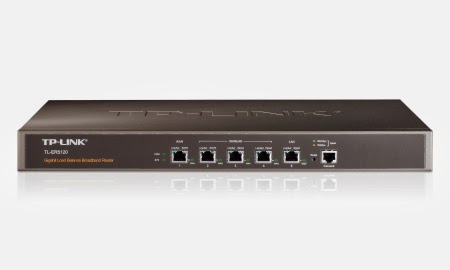Dedicate Line- A dedicated line is a communications cable or other facility dedicated to a specific application, in contrast with a shared resource such as the telephone network or the Internet.
In practice, such services may not be provided by a single, discrete, end-to-end cable, but they do provide guarantees of constant bandwidth availability and near-constant latency, properties that cannot be guaranteed for more public systems.
ISDN Line- Integrated Services for Digital Network (ISDN) is a set of communication standards for simultaneous digital transmission of voice, video, data, and other network services over the traditional circuits of the public switched telephone network. ISDN is a circuit-switched telephone network system, which also provides access to packet switched networks, designed to allow digital transmission of voice and data over ordinary telephone copper wires, resulting in potentially better voice quality than an analog phone can provide.
DSL- Digital subscriber line (DSL, originally digital subscriber loop) is a family of technologies that provide Internet access by transmitting digital data over the wires of a local telephone network. In telecommunications marketing, the term DSL is widely understood to mean asymmetric digital subscriber line (ADSL), the most commonly installed DSL technology.
Fiber to the premise (FTTP)- Fiber-To-The-Premises (FTTP) is a technology for providing Internet access by running fiber optic cable directly from an Internet Service Provider (ISP) to a user's home or business.
T-carrier lines- T-carrier, sometimes abbreviated as T-CXR, refers to one of several digital transmission systems developed by Bell Labs. T-carriers are used in North America, South Korea, and Kyoto.The first of these was Transmission System 1 (T-1), which Bell Labs introduced in 1962. T-1 greatly increased the number of telephone calls the telephone network was capable of transmitting at one time.
Asynchronous Transfer Mode (ATM)- Asynchronous Transfer Mode (ATM) is, according to the ATM Forum, "a telecommunications concept defined by ANSI and ITU (formerly CCITT) standards for carriage of a complete range of user traffic, including voice, data, and video signals". ATM was developed to meet the needs of the Broadband Integrated Services Digital Network, as defined in the late 1980s, and designed to unify telecommunication and computer networks.
B)
The TL-ER5120 Gigabit Load Balance Broadband Router from TP-LINK possesses excellent data processing capabilities and multiple powerful functions including Load Balance, Access Control, IM/P2P Blocking, DoS Defense, Bandwidth Control, Session Limit and PPPoE Server, which meet the needs of small and medium enterprises, hotels and communities with large volumes of users demanding an efficient and easy-to-manage network with high security.
| HARDWARE FEATURES | |
|---|---|
| Standards and Protocols | IEEE 802.3, 802.3u, 802.3ab TCP/IP, DHCP, ICMP, NAT, PPPoE, SNTP, HTTP, DNS, IPsec, PPTP, L2TP |
| Interface | 1 Fixed 10/100/1000Mbps WAN Port 3 Free Changeable 10/100/1000Mbps WAN/LAN Ports 1 Fixed 10/100/1000Mbps LAN/DMZ Port 1 Console Port (RJ-45 On RS232) |
| Network Media | 10BASE-T: UTP category 3, 4, 5 cable (Max 100m) EIA/TIA-568 100Ω STP (Max 100m) 100BASE-TX: UTP category 5, 5e cable (Max 100m) EIA/TIA-568 100Ω STP (Max 100m) 1000BASE-T: UTP category 5, 5e, 6 cable (Max 100m) |
| Flash | 8MB |
| DRAM | DDRII 128MB |
| LED | PWR, SYS, Link/Act, Speed, WAN, DMZ |
| Button | Reset Button |
| Dimensions ( W x D x H ) | 17.3x8.7x1.7 in.(440x220x44 mm) 19-inch Standard Rack-Mount Width, 1U Height |
| Power Supply | Internal Universal Power Supply AC100-240V~ 50/60Hz Input |
| PERFORMANCE | |
|---|---|
| Concurrent Session | 120000 |
| NAT Throughput | 350Mbps |
| BASIC FUNCTIONS | |
|---|---|
| DHCP | DHCP Server/Client DHCP Reservation |
| MAC Clone | Modify WAN/LAN/DMZ MAC Address |
| Switch Setting | Port Mirror Rate Control Port Config Port VLAN |
| WAN Connection Type | Dynamic IP, Static IP, PPPoE, PPTP, L2TP, Dual Access, BigPond |
| ADVANCED FUNCTIONS | |
|---|---|
| Load Balance | Intelligent Load Balance Policy Routing Protocol Binding Link Backup (Timing, Failover) Online Detection |
| NAT | One-to-One NAT Multi-nets NAT Virtual Server, DMZ Host, Port Triggering, UPnP FTP/H.323/SIP/IPsec/PPTP ALG |
| Routing | Static Routing Dynamic Routing (RIP v1/v2) |
| System Mode | NAT, Non-NAT, Classical Routing |
| Traffic Control | IP-based Bandwidth Control Guarantee & Limited Bandwidth Time-scheduled Policy IP-based Session Limit |
| SECURITY | |
|---|---|
| ARP Inspection | Sending GARP Packets ARP Scanning by WAN/LAN IP-MAC Binding |
| Application Control | IM, P2P, Web IM, Web SNS, Web Media, Protocol, Proxy Blocking |
| Attack Defense | TCP/UDP/ICMP Flood Defense Block TCP Scan (Stealth FIN/Xmas/Null) Block Ping from WAN |
| DMZ Port | 1 Hardware DMZ Port |
| Filtering | MAC Filtering URL/Keywords Filtering Web Content Filtering (Java, ActiveX, Cookies) |
| MANAGEMENT | |
|---|---|
| Maintenance | Web/CLI/Telnet Management Interface Remote Management Export & Import Configuration NTP Synchronize Syslog Support |
| Service | PPPoE Server E-Bulletin Dynamic DNS (Dyndns, No-IP, Peanuthull, Comexe) |
| OTHERS | |
|---|---|
| Certification | CE, FCC, RoHS |
| Package Contents | TL-ER5120 Resource CD Power Cord Rack-mount Kit Installation Guide |
| System Requirements | Microsoft® Windows® 98SE, NT, 2000, XP, Vista™ or Windows 7, MAC® OS, NetWare®, UNIX® or Linux |
| Environment | Operating Temperature: 0℃~40℃ (32℉~104℉) Storage Temperature: -40℃~70℃ (-40℉~158℉) Operating Humidity: 10%~90% non-condensing Storage Humidity: 5%~90% non-condensing |

No comments:
Post a Comment